In its 100 years, who has China’s Communist Party purged?
Political purges are a feature of CCP’s long history. Here are the stories of the most prominent insiders who fell from grace.

The Chinese Communist Party’s (CCP) 100-year history is not just one of revolution and rejuvenation, but also ruthlessness.
From Mao Zedong’s Cultural Revolution to Deng Xiaoping’s Tiananmen Square crackdown and Xi Jinping’s anti-corruption crusade, leaders of the CCP have not hesitated to take whatever steps they deem necessary to secure and remain in power.
Keep reading
list of 4 itemsChina’s Communist Party at 100: Where are the women?
Xi says no more ‘bullying’ as China marks party centenary
Fewer have confidence in China’s Xi than US’s Biden: Pew survey
Nowhere is this more evident than in the cases of purged party insiders.
From Peng Dehuai, the general who was tortured for opposing Mao’s disastrous economic policies, to Zhao Ziyang, the premier erased from history for seeking compromise with protesters when Deng favoured guns and tanks, and Zhou Yongkang, the ex-security chief who reportedly threatened Xi’s ascent only to get jailed for corruption – political purges are a time-honoured CCP tradition.
Here are some of the most prominent figures who were purged:
Peng Dehuai
One of China’s greatest military leaders, Peng fell from grace when he criticised Mao’s Great Leap Forward, an economic programme in the late 1950s that aimed to push China into the industrial age by collectivising agriculture and creating steel in backyard furnaces, but ended up with as many as 30 million people starving to death.
Peng – who had led Chinese forces in the Korean war and signed the armistice that ended hostilities – was appointed defence minister in 1954. But he was dismissed from office after he called policies of the Great Leap Forward impractical.
He was also one of the first victims of the Cultural Revolution, a campaign of extreme violence launched in 1966 when fanatical Red Guards loyal to Mao set out to destroy all vestiges of China’s feudal culture and root out the chairman’s perceived enemies.
Peng was arrested in 1966, imprisoned and tortured, with Red Guards beating him until his back was “splintered”, according to the People’s Daily. He died in 1974 while held in solitary confinement.
Liu Shaoqi

Once considered the heir apparent to Mao, Liu was another prominent victim of the Cultural Revolution.
Liu, who replaced Mao as the Chinese head of state in 1959, was condemned by the Red Guards as a “renegade, traitor, scab” and a “capitalist roader” intent on defeating the Communist revolution. In 1968, he was stripped of his positions and expelled from the party.
He died in 1969, but his death was not announced until 1974.
Deng Xiaoping
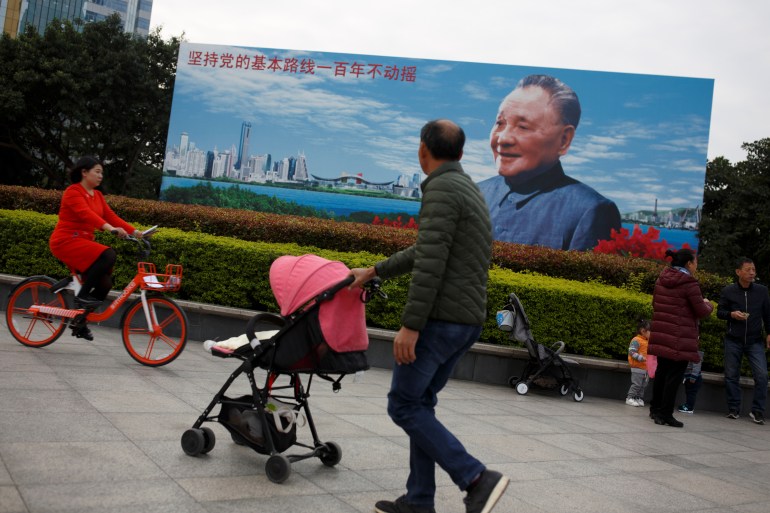
A founding revolutionary of the CCP, Deng was purged from the party twice during the Mao era (1949- 1976).
During the Cultural Revolution, Deng’s economic pragmatism and ties to Mao’s rivals within the Communist leadership, including Liu Shaoqi, cost him his party posts. He was then sent to work at a tractor factory.
Mao brought Deng back to the leadership in 1973, appointing him vice premier and giving him day to day control of the government. But just three years later, Mao purged Deng again, this time because Mao feared Deng may reverse some of his radical policies.
Following Mao’s death, Deng became China’s paramount leader – although he did not hold the top CCP post – and remained the country’s most powerful figure until his death in 1997.
Lin Biao
A Chinese marshal, Lin Biao succeeded Peng Dehuai as China’s minister of defence in 1959.
He played a key role in the Cultural Revolution and was later tipped as Mao’s successor.
But by 1971, Lin and the army had amassed more political authority than Mao thought desirable, according to Edward JM Rhoads, professor of history at the University of Texas. In a desperate move to avoid being purged, Lin plotted a coup that failed. The Chinese government later said Lin had died on September 13, 1971, in an aeroplane crash in Mongolia as he was fleeing to the Soviet Union.
Jiang Qing
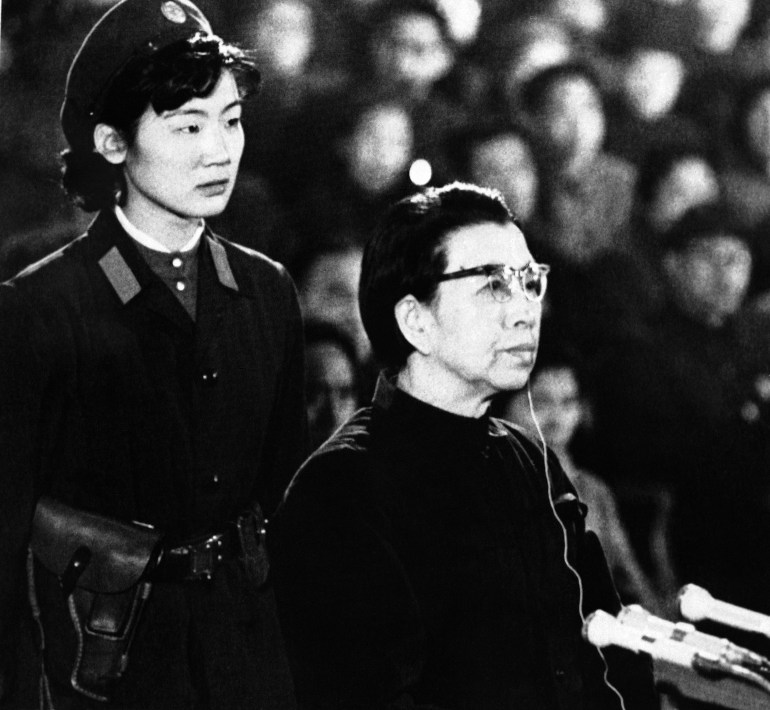
Mao’s third wife, Jiang Qing and three of her aides were expelled from the party in the aftermath of Mao’s death in 1976.
Part of the group known as the Gang of Four, Jiang was arrested and tried for treason and other crimes against the state for her role in the Cultural Revolution. The group was blamed for the death of 34,375 people and the persecution of hundreds of thousands of innocent people.
During her trial, Jiang was reported to have said, “I was Chairman Mao’s dog. Whomever he told me to bite, I bit.”
Jiang was given a suspended death sentence that was later reduced to life imprisonment.
She died by suicide in 1991.
Chen Boda
Political secretary to Mao, Chen was the chief interpreter of the revolutionary leader’s thoughts.
He was sentenced to 18 years in prison for crimes during the Cultural Revolution.
Hu Yaobang
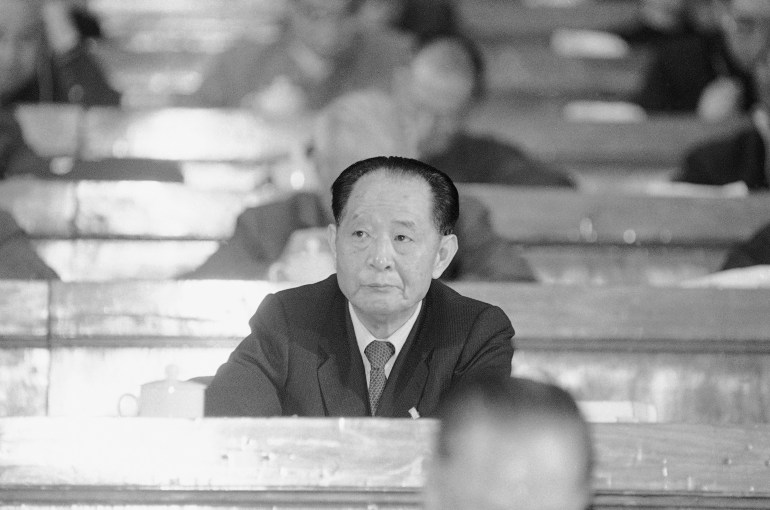
Once the right hand to Deng Xiaoping, Hu served as the general secretary of the CCP from 1980-87.
Early in 1997, after several weeks of student demonstrations demanding greater political freedoms, Hu was removed from the party’s top position and sidelined for tolerating “bourgeois liberalisation” or Western democratic influences.
It was Hu’s 1989 death that catalysed the student-led protests for democracy in Beijing’s Tiananmen Square. Hu is also credited with helping redress the political fortunes of Xi’s father Xi Zhongxun, who had been jailed during Mao’s time.
“By ending the elder Xi’s 16-year purge from the party, and restoring him to a party position in Guangdong, Hu Yaobang paved the way for the elder Xi’s continued power and influence, and for the younger Xi’s rise to ultimate power in China today,” Bonnie Girard, a China watcher, argued in a 2018 article published in The Diplomat magazine.
Zhao Ziyang
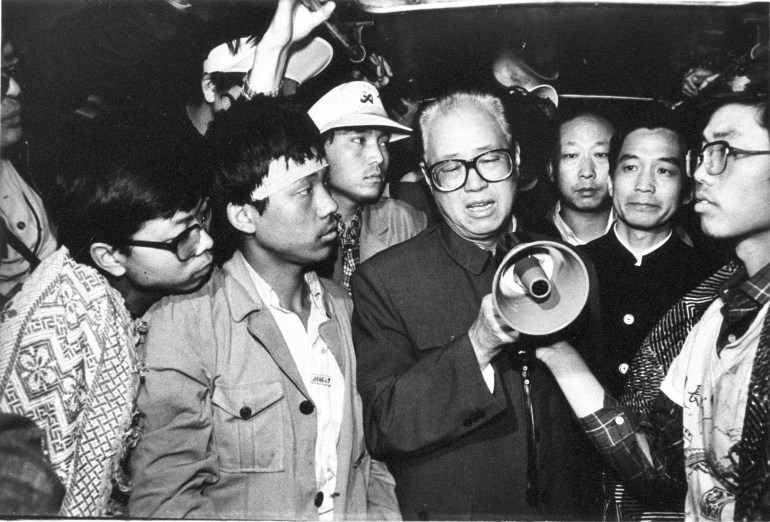
Head of the CCP in 1989, Zhao was a reformist leader who was purged for refusing to declare martial law and send in the military to suppress the pro-democracy protests in Tiananmen Square that year.
“I told myself that no matter what, I would not be the general secretary who mobilised the military to crack down on the students,” he later wrote in his memoirs. On May 19, 1989, Zhao even turned up in person at the square at dawn to plead with the students to leave the area. The next day, martial law was declared in Beijing and two weeks later, soldiers moved into the square and opened fire, killing hundreds, if not thousands of people.
Zhao was placed under house arrest and never appeared in public again.
His name has since been mostly erased from the Chinese news media, histories and websites.
When he died in 2005, an official obituary referred to him only as comrade and did not mention that he had helped lead the country for nearly 10 years.
Zhou Yongkang
The former head of China’s security services, Zhou was jailed for life in 2015 for bribery, corruption and abuse of power.
He was the highest-ranking figure felled in Xi’s sweeping anti-corruption crackdown.
Zhou’s son and wife were also jailed in 2016 for corruption. The Reuters news agency said Chinese authorities seized $14.5bn from Zhou’s family, and arrested or questioned more than 300 of Zhou’s relatives, political allies, proteges and staff.
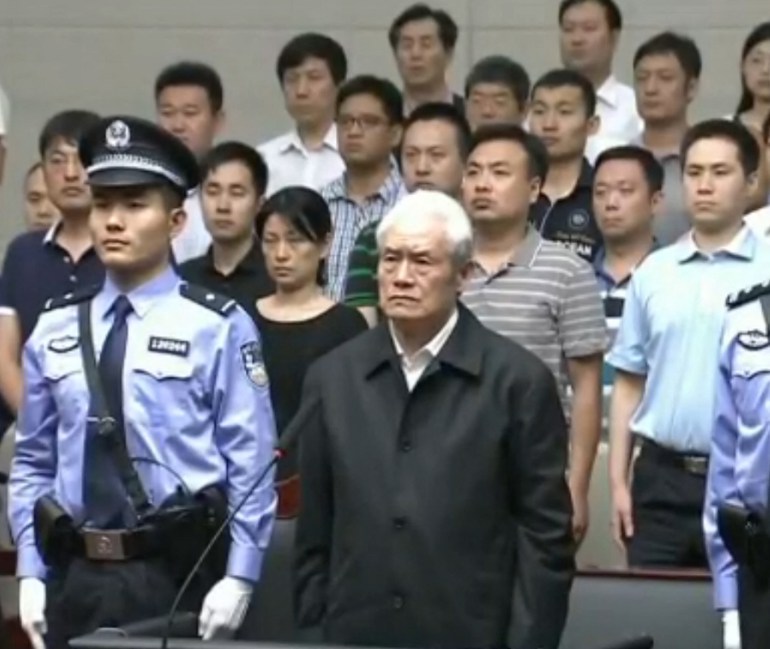
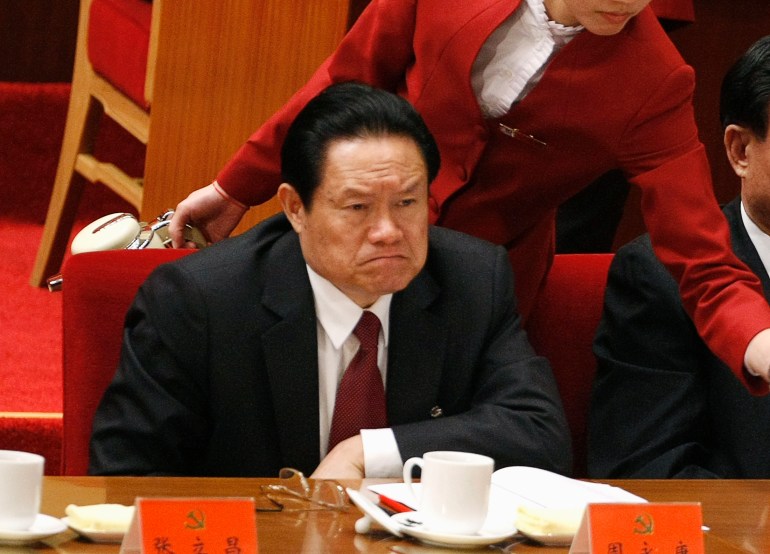
A top CCP official later told the party congress in 2017 that Zhou and five other people had plotted to seize power from Xi. They were identified as prominent politician Bo Xilai, Politburo member Sun Zhengcai, former presidential aide Ling Jihua, late army general Xu Caihou and former general Guo Boxiong.
Bo, a former CCP chief in Chongqing, was expelled from the party in 2012 in the wake of a dramatic scandal in which his wife was accused of murdering a British businessman. The following year, he was jailed for corruption, bribery and abuse of power.
Xu died while under investigation for graft, and the remaining three in the alleged plot against Xi were also jailed for corruption.
Xu Caihou
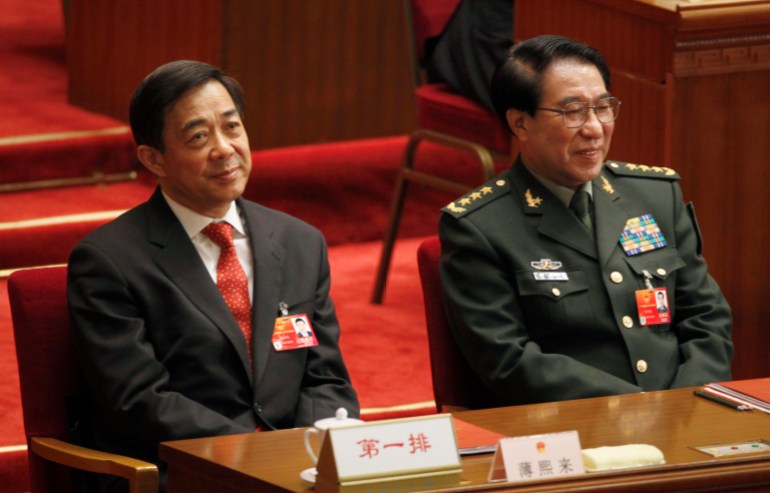
A former general who served as vice chairman of China’s Central Military Commission, Xu was expelled from the CCP in 2014 amid accusations of bribery. He died the following year from bladder cancer.
Announcing his death, China’s military said Xu’s “pathetic and shameful life” had ended.
A top CCP official told the party’s 2017 Congress that the Xu was among six people who had plotted to usurp power from Xi.
Guo Boxiong
A former general who served as vice chairman of China’s Central Military Commission, Guo was jailed for life in 2016 for accepting bribes.
A top CCP official told the party’s 2017 Congress that the Guo was among six people who had plotted to usurp power from Xi.
Ling Jihua
A former senior aide to former Chinese President Hu Jintao, Ling was sentenced in 2016 to life in prison for bribery, abuse of power and illegally obtaining state secrets.
His wife testified in the trial against him.
Ling’s brother, Ling Zhengce, was also sentenced that same year to a 12-and-a-half-year jail term for bribery.
A top CCP official told the party’s 2017 Congress that the Ling Jihua was among six people who had plotted to usurp power from Xi.
Sun Zhengcai
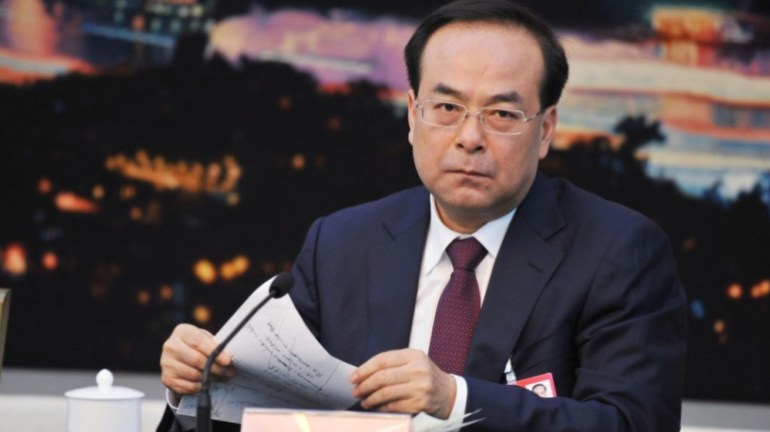
A former Politburo member, Sun was sentenced to life in prison in 2018 for bribery.
He had once been considered a contender for the party’s top leadership.
A top CCP official told the party’s 2017 Congress that Sun and five others had plotted to seize power from Xi.